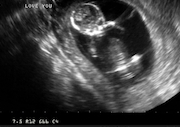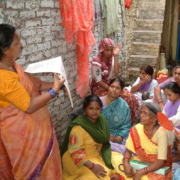‘DIY abortion’ consultations – some ideas for your submissions
 The English and Welsh consultations into extending the provision for early medical abortion (EMA) to take place at home beyond the coronavirus crisis are both underway. They close on 26 February and 23 February respectively.
The English and Welsh consultations into extending the provision for early medical abortion (EMA) to take place at home beyond the coronavirus crisis are both underway. They close on 26 February and 23 February respectively.
These don’t differ significantly from the Scottish consultation, which closed on 5 January. If you need some ideas of how to respond to these consultations, please check out our response to the Scottish one here. As usual, please don’t simply copy and paste chunks of text – these things are always more persuasive if you can say them in your own words.
Here are a couple of recent stories that may also inform your responses.
Public concerns
While the Scottish consultation was running, SPUC ran a poll of Scottish adults (with Savanta ComRes) to assess public attitudes to home abortions. 84 per cent of respondents to the poll said they were concerned that women might be coerced into an abortion, and 86 per cent said they were worried that women in abusive situations might be pressured into having an unwanted abortion if they are not able to have a face-to-face consultation.
Respondents were made aware of the ‘Mystery Client’ investigation in which 26 women were able to receive abortion pills by post after a phone call to an abortion provider in which they gave false information about their identity and gestation (none of the women was pregnant). Having heard this, 91 per cent expressed agreement with the statement, ‘It is concerning that callers giving false information can easily obtain abortion drugs’ and 92 per cent with the statement, ‘Staff at abortion providers need to ensure that they are collecting correct medical and personal information to certify a woman for a home abortion.’
This poll has not received any media coverage, but the results are available on the SPUC website if you wish to refer to them in your response/s to the consultation/s.
Under-reporting of complications
At the end of last year, the Government published its statistics on abortion from January to June 2020. In response to an FOI request, they reported that ‘Between April and June 2020, there were 23,061 medical abortions performed on residents of England and Wales where both medicines (antiprogesterone and prostaglandin) were administered at home. Of the 23,061 abortion notification forms received, one form reported a complication.’
In a post for politics.co.uk, Sally-Ann Hart MP pointed out:
‘This would mean that the average rate of complication for medical abortions at a similar gestation over the past five years was over seventeen times higher than the complication rate for home abortions earlier this year.
‘This is not only highly unlikely – that complications would radically reduce in a home setting versus a medical setting – but, some may say, ridiculous.
‘There is either a serious problem when medical abortions are provided in a clinical environment with direct medical supervision – leading to vastly more complications in clinics than in homes – or a substantial issue with the overall quality of reporting and recording the real impact of ‘at-home’ medical abortions on women’s health.’
CMF is looking into what part we can play in highlighting this significant under-reporting of complications. We invite members to contact us with any further concerns or stories about how DIY abortions affect your patients and practice.










Leave a Reply
Want to join the discussion?Feel free to contribute!